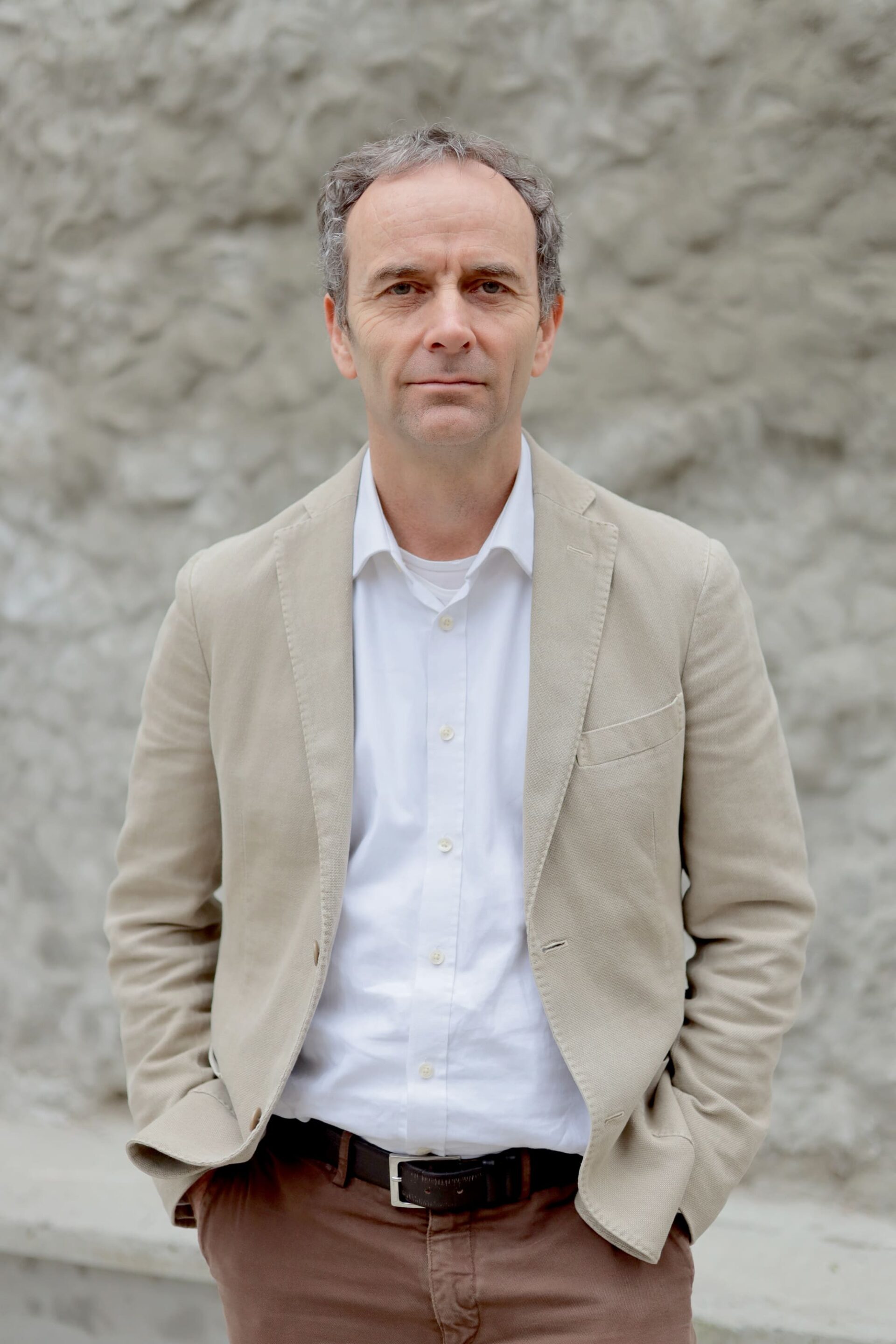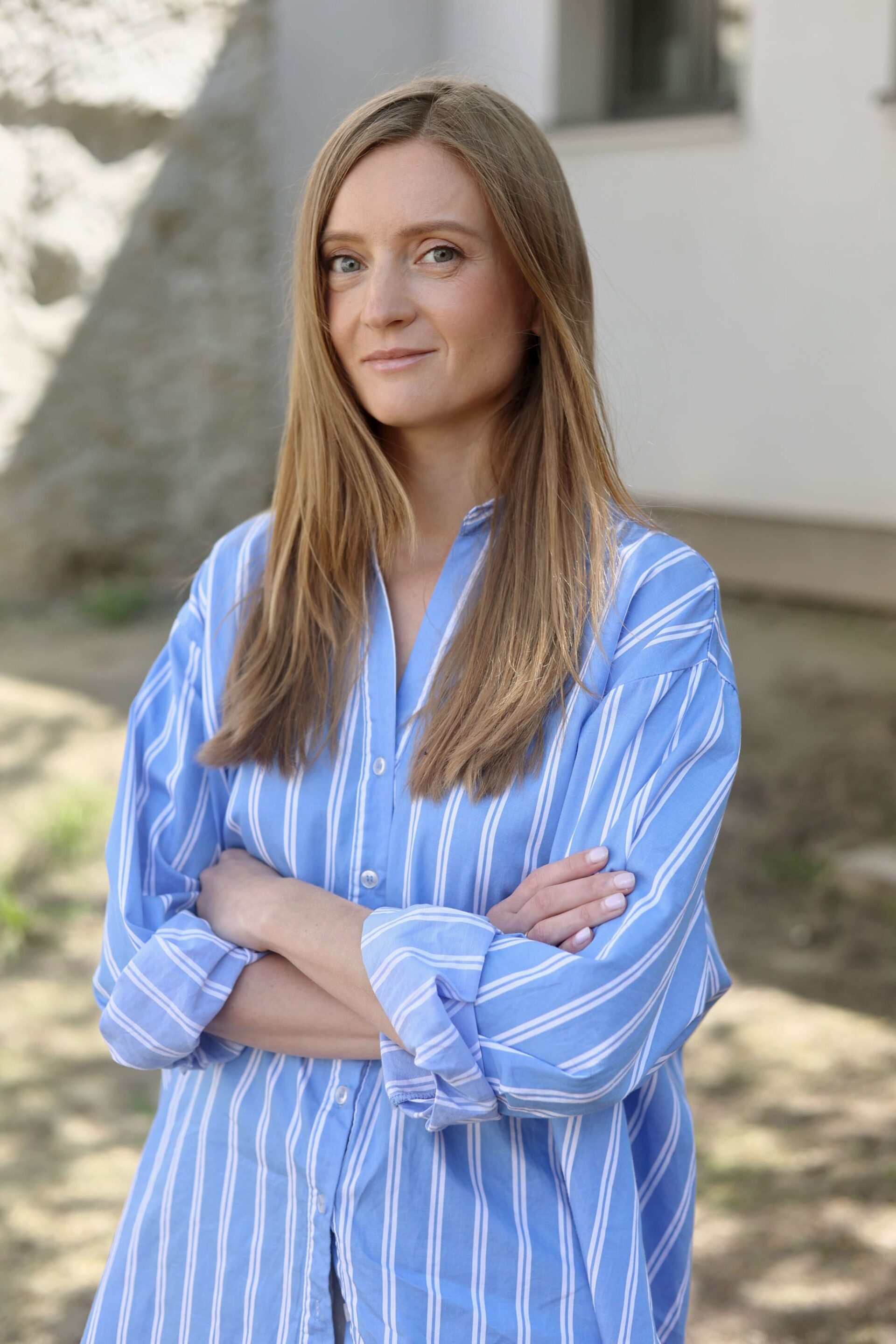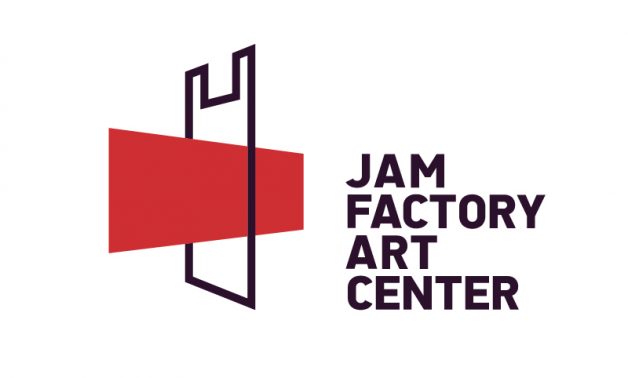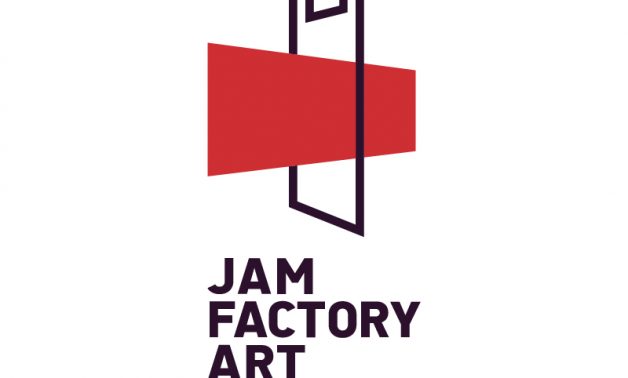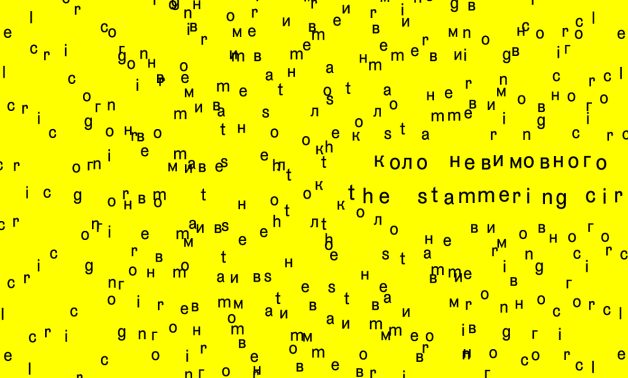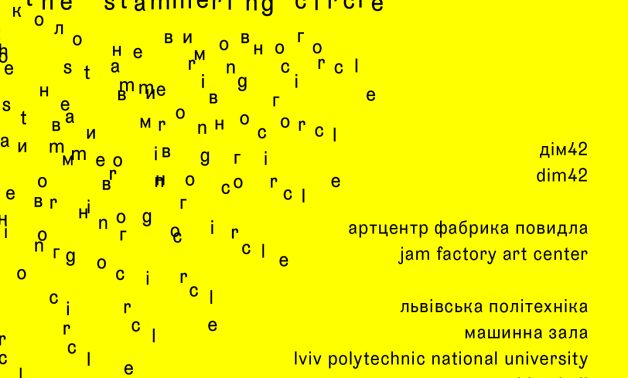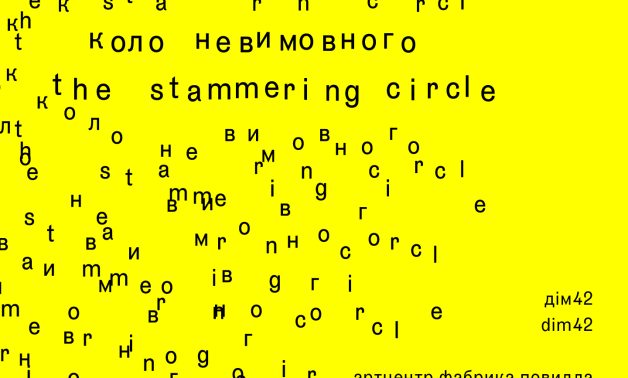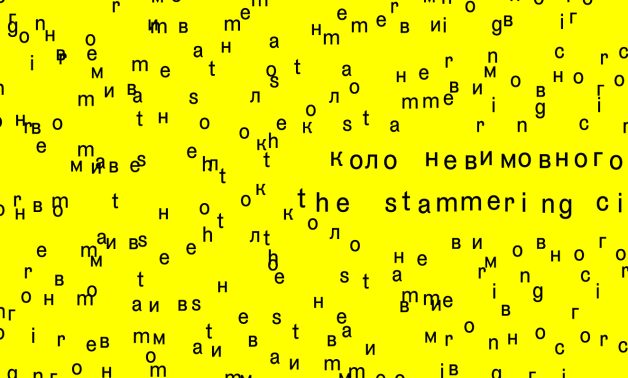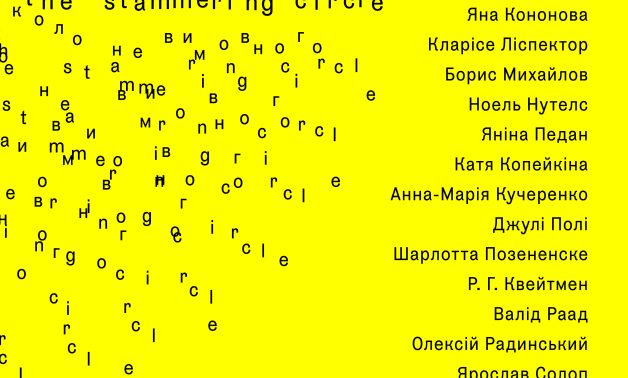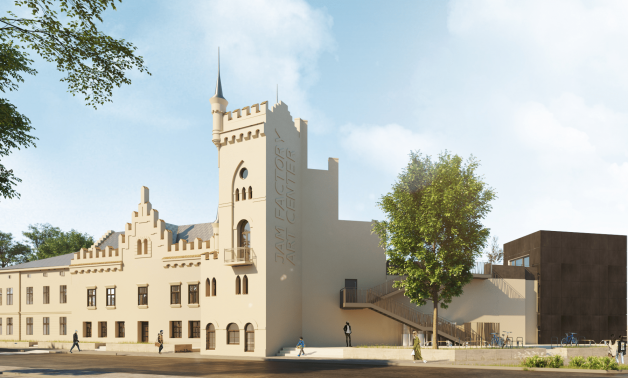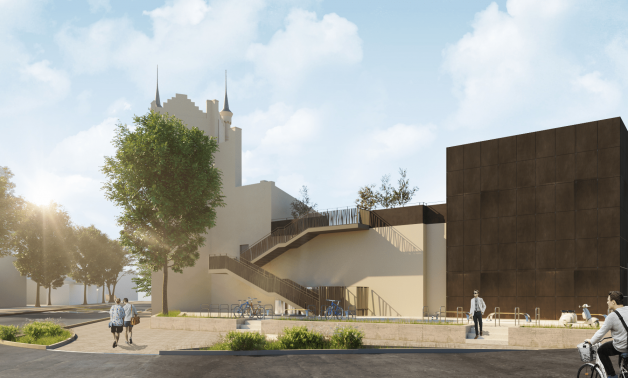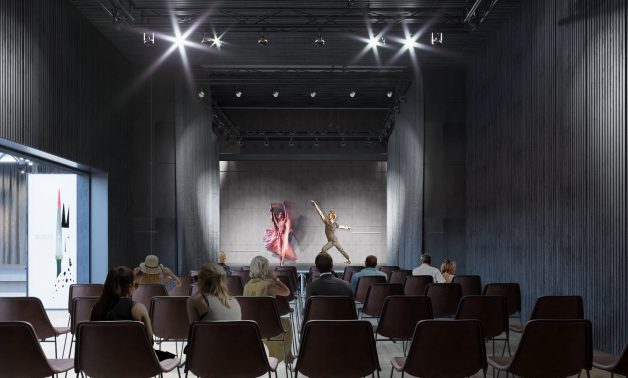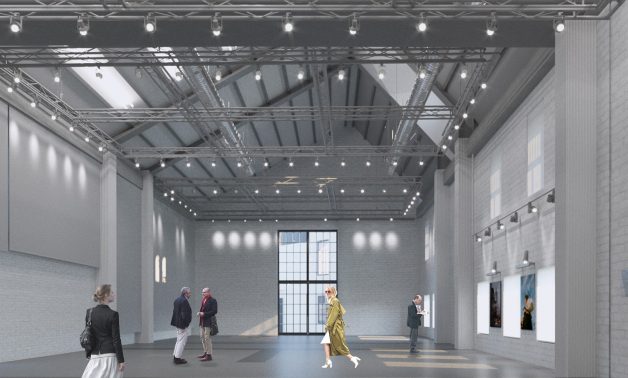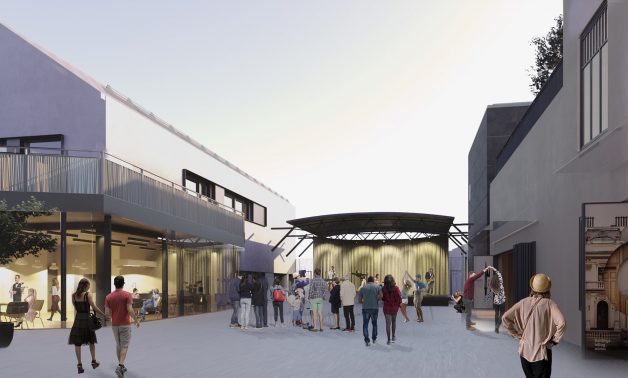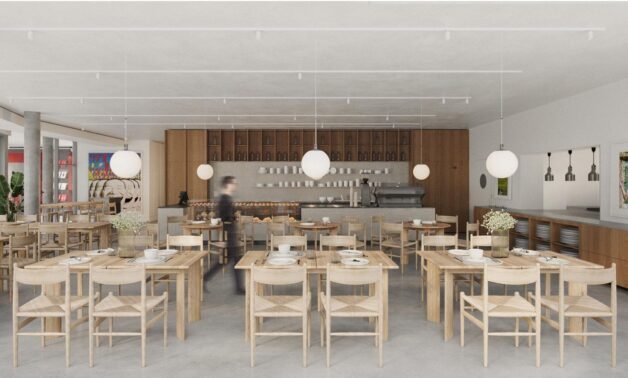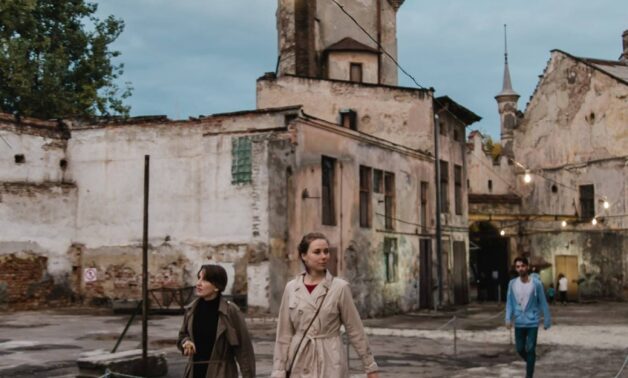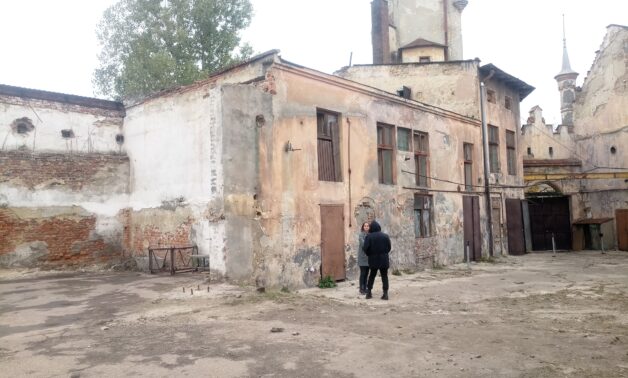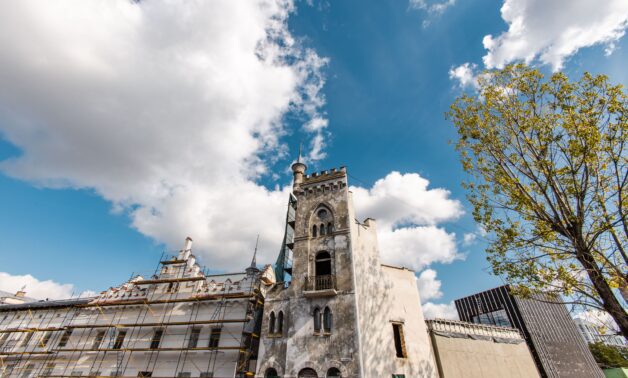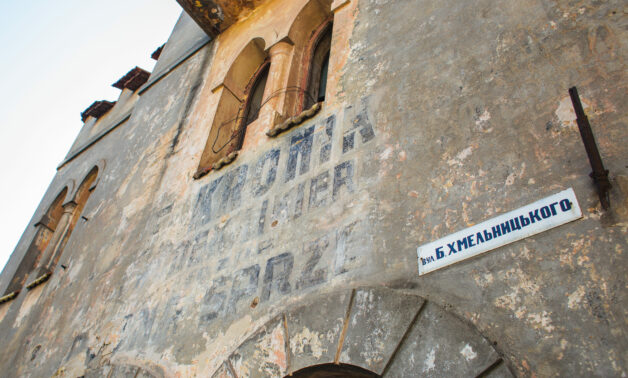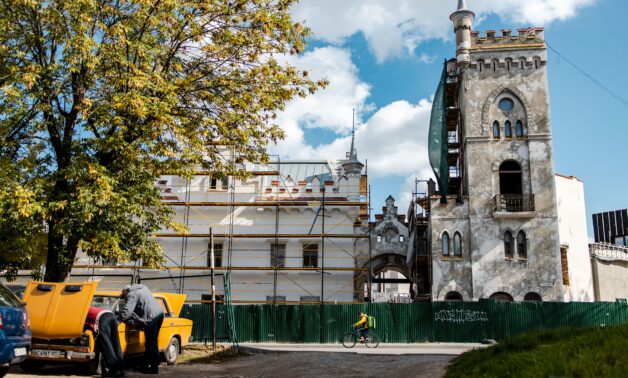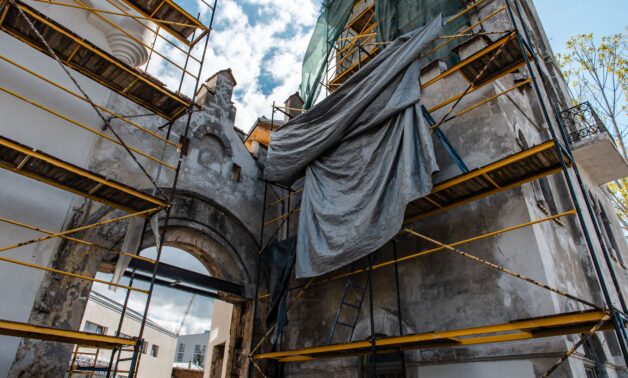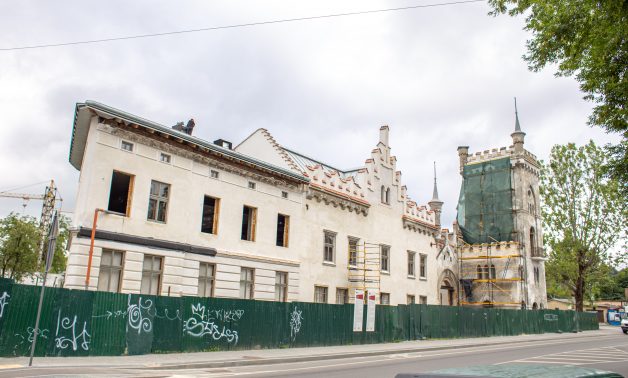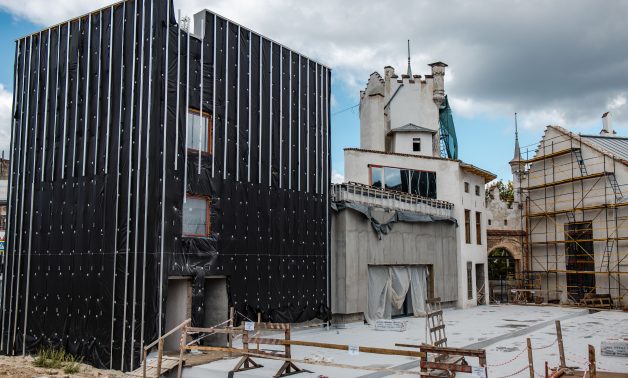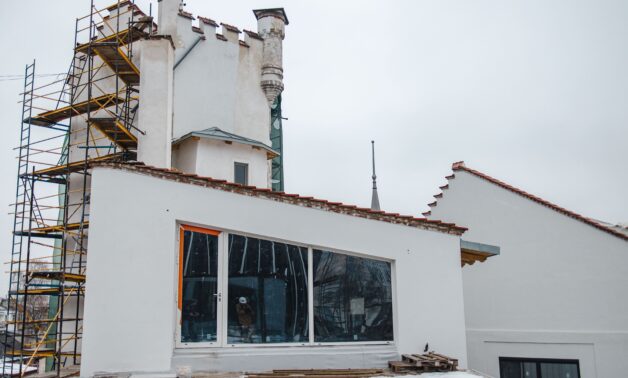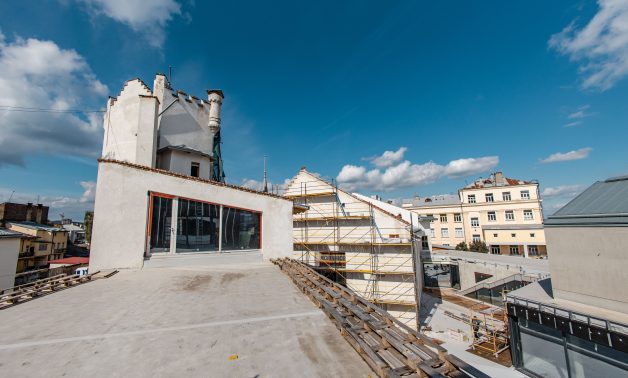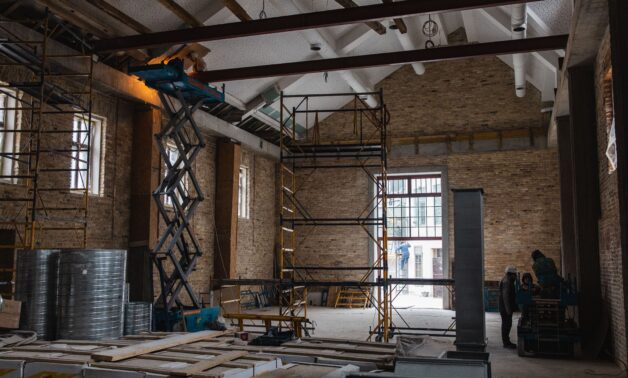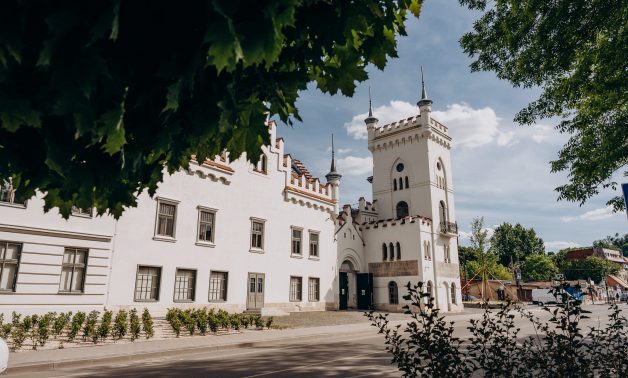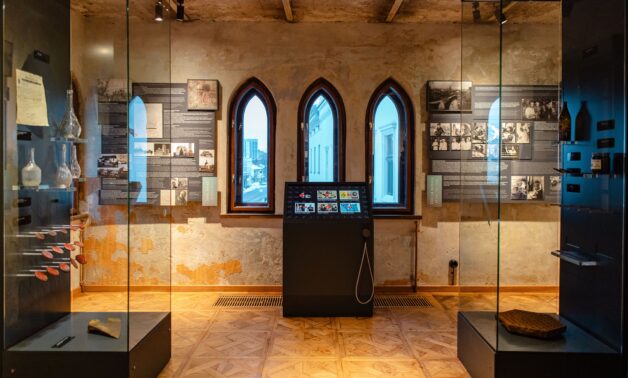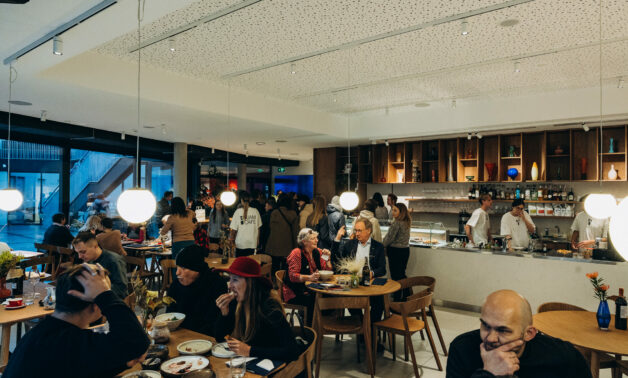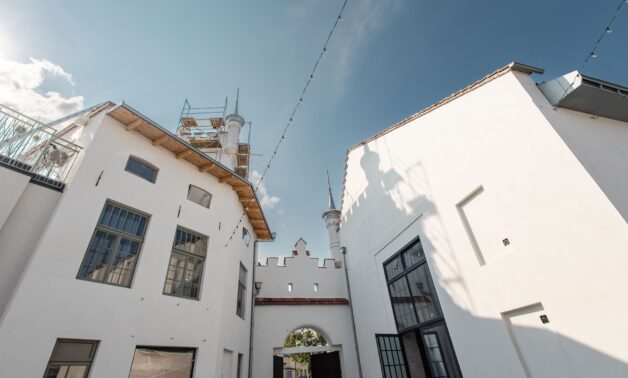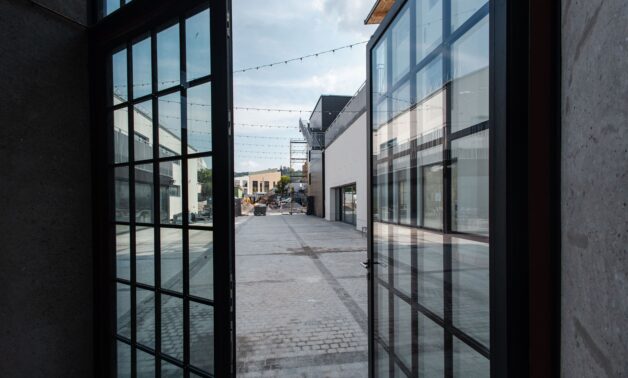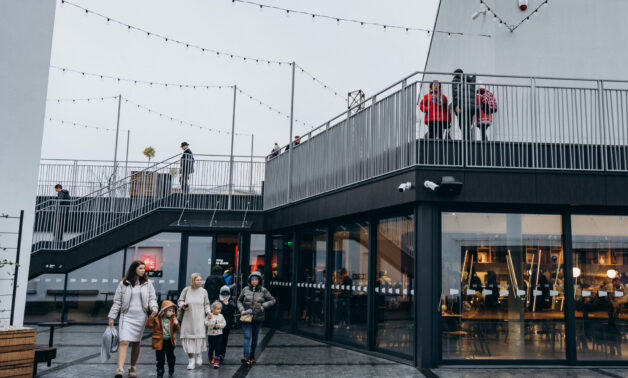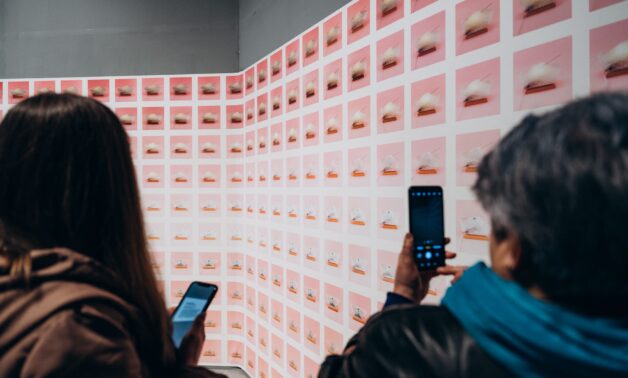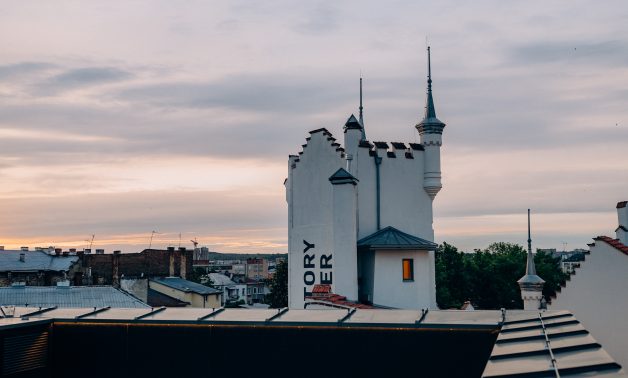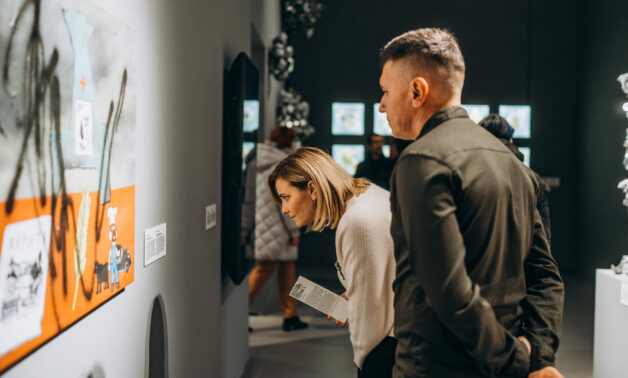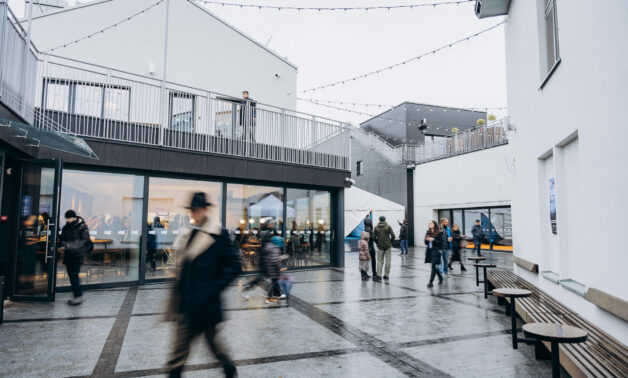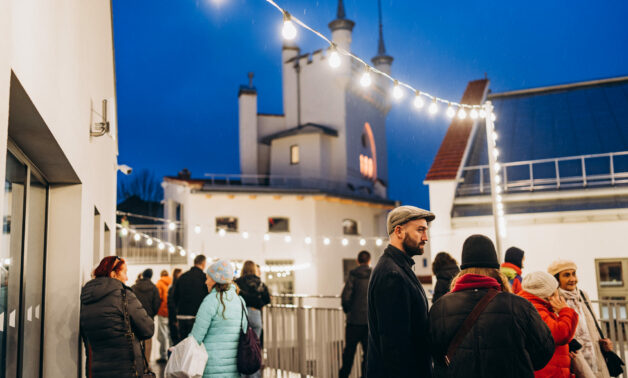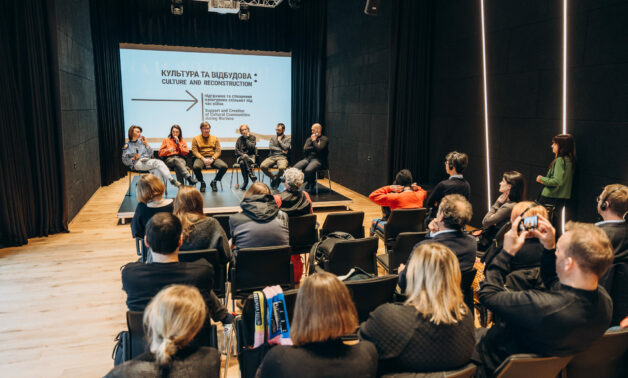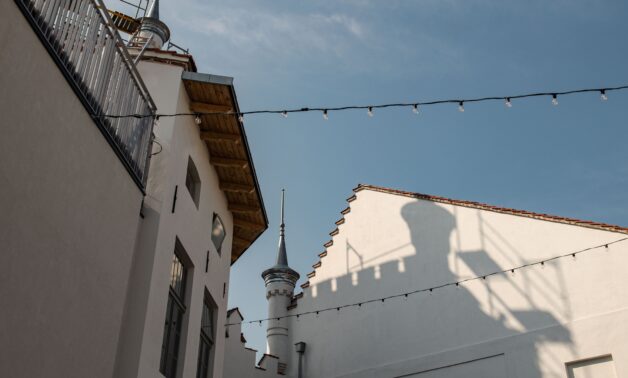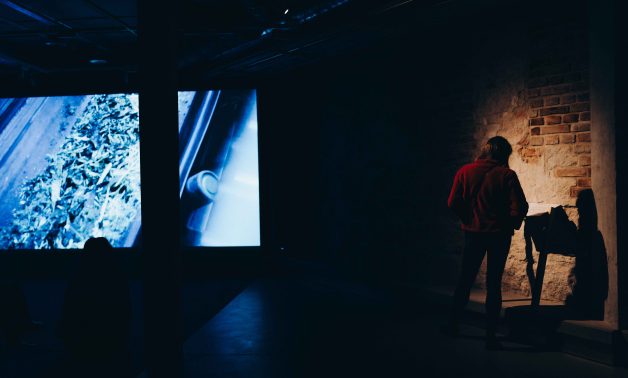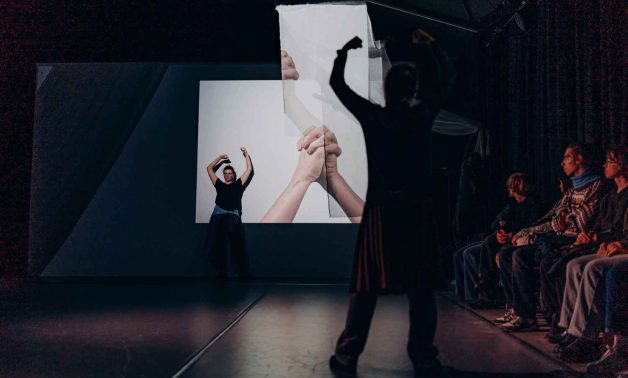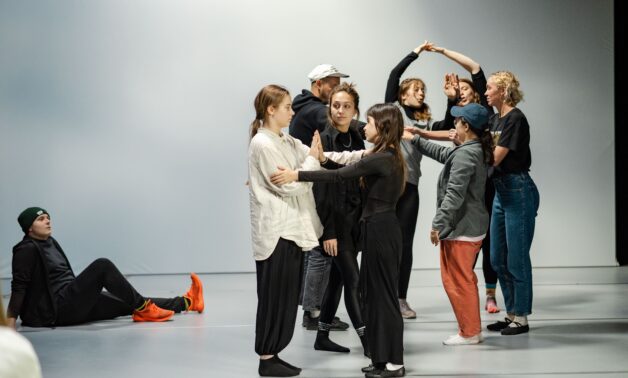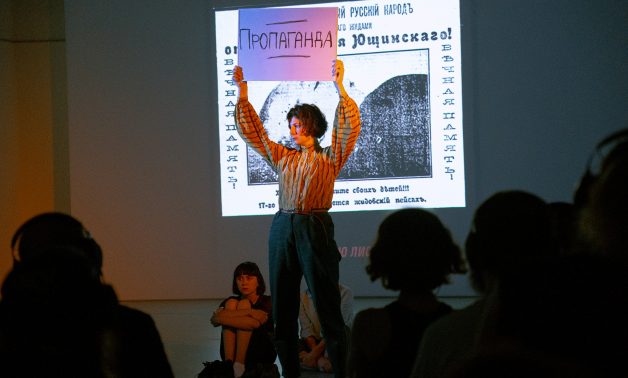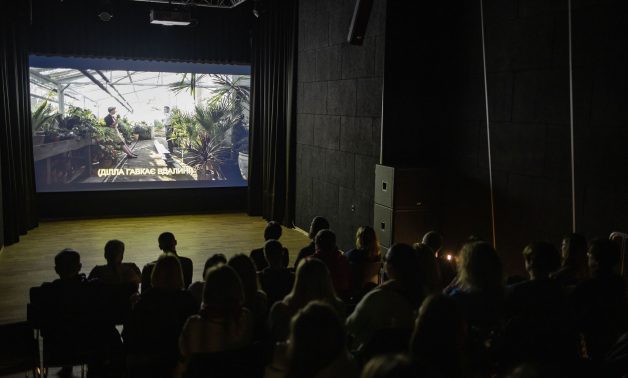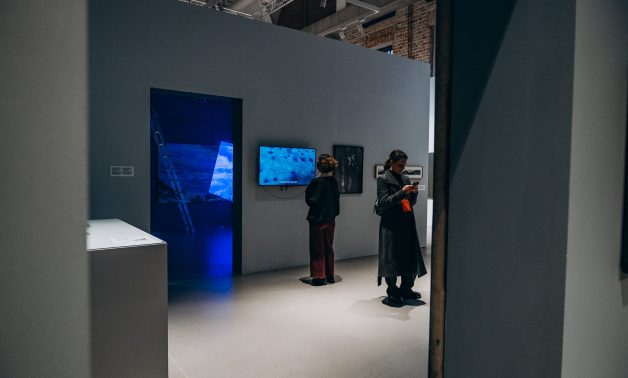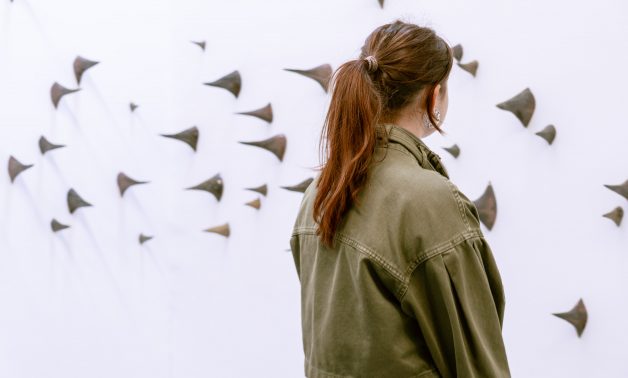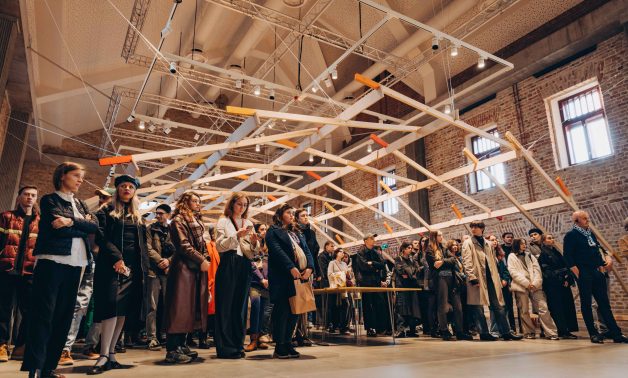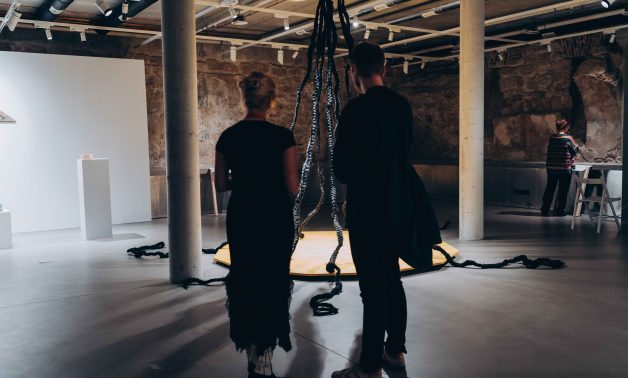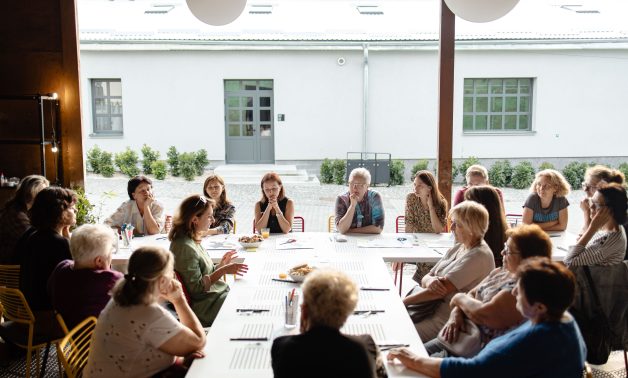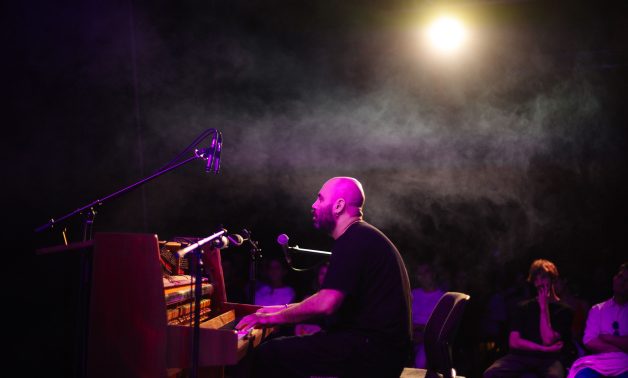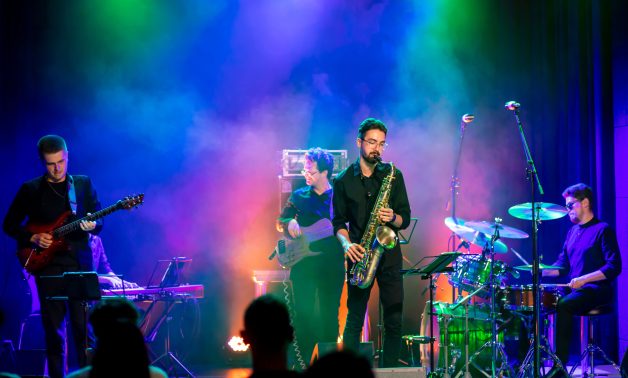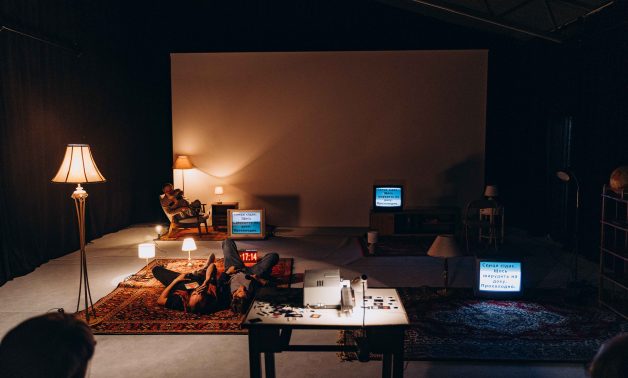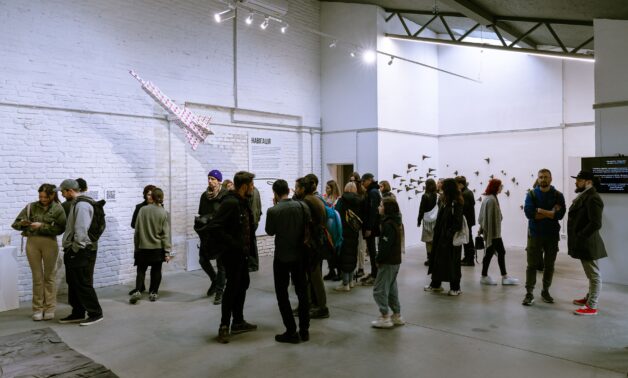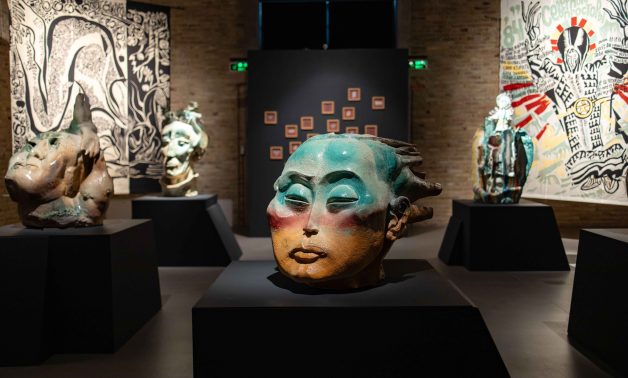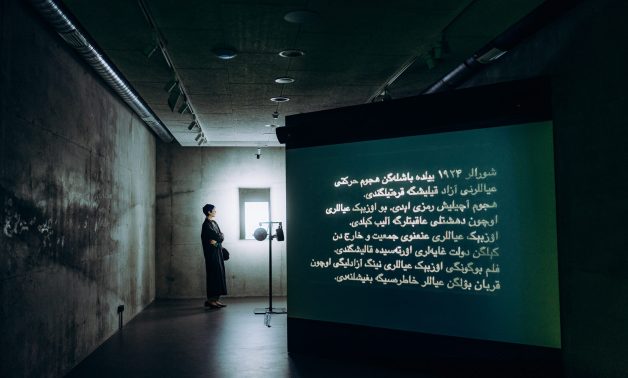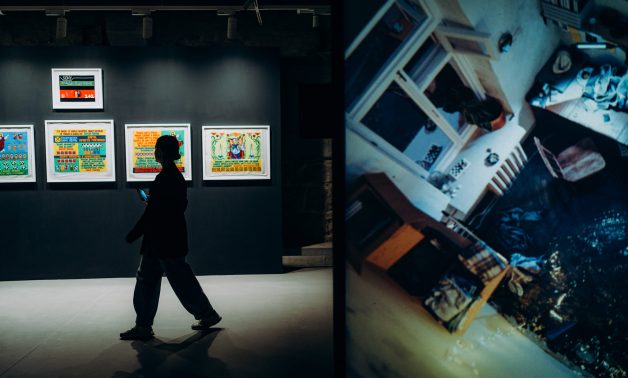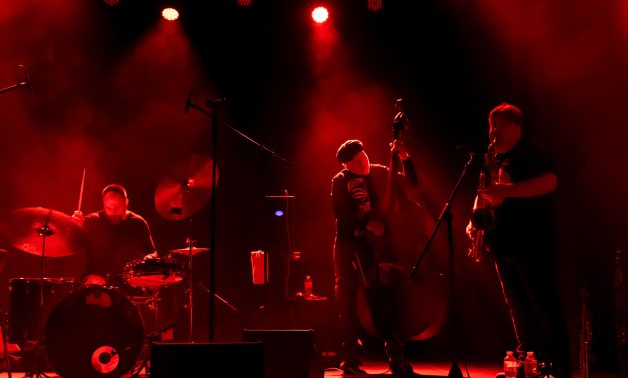Media contacts
Lesia Dunets, communication manager of Jam Factory Art Center
[email protected]
JAM FACTORY: A NEW ART CENTER FOR UKRAINE OPENS IN THE MIDST OF WAR
On 18 November 2023, Jam Factory Art Center in Lviv officially opened its doors to the public. Housed in a former industrial building first used as distillery and later as a fruit bottling plant, Jam Factory Art Center will stage exhibitions of modern and contemporary art, as well as host new productions in performative arts and music in a specially designed space.
The idea of establishing a new cultural centre in Lviv took root in 2015, when philanthropist and historian Dr. Harald Binder decided to support the development of Jam Factory Art Center as a center for contemporary art. The initiative also saw an opportunity to regenerate Lviv’s industrial building and its neighborhood into a vibrant public space. After extensive research and preparation, significant funding was provided to go ahead.
Jam Factory Art Center is located in the district of Pidzamche, north of central Lviv, once a thriving industrial area. The building, with its distinctive crenellations and neo-gothic façade, was commissioned by the Jewish entrepreneur Josef Kronik in 1872. It operated as a successful distillery until the Second World War, which the Kronik family, tragically, did not survive. Post war, the factory was importing wines from Moldova and other parts of the USSR until, in 1970, it was converted into a plant for bottling fruit and vegetables. It ceased production in the 1990s. From 2008 the building was used on an ad hoc basis for cultural initiatives such as the Contemporary Art Week, a theatre festival, and other artistic and community engaged activities.
Following the purchase of the buildings in 2015, the Austrian architectural firm of Stefan Rindler was selected to restore and re-model the former building in collaboration with the Ukrainian office AVR. To create a multidisciplinary art centre as a space for critical reflection through culture was the concept from the beginning. Institutions of this kind which would also serve as a point of connection between Ukraine and the wider world are still rare in the country. The structural composition of the complex consisting of six separate buildings reflects these ambitions. Grouped around an open courtyard and an extended alley, Jam Factory Art Center is built as a continuous, flexible space, able to accommodate performance, installation, and discussions. On the larger territory the site of a former synagogue has been marked out, a reminder, rather than an erasure, of Ukraine’s turbulent past.
The Stammering Circle exhibition
Faktura 10 and RIBBON International present The Stammering Circle, an exhibition that opens in Lviv at the Jam Factory Art Center on June 21, 2025.
The Stammering Circle, a distributed exhibition on view at locations throughout Lviv, addresses disruption as dysfluency—a “stammering” that makes room for the pause essential to the exhibition of art in the context of war. A noisy business, war is voluminous, invasive, and serially destructive. It intercepts the continuum of time, breaks our understanding of cause and effect, violently occupies the everyday, and challenges the basic tenets of existence.
What constitutes art in times of rupture? How is it possible to find refuge from war’s perpetual state of contingency to make room for creative reflection? What are the forms and expressions—beyond mourning, loss, and requiem—that seize on instability to make a generative space to create resonantly? The Stammering Circle, curated by Marta Kuzma, draws inspiration from the writings of Czernowitz-born Paul Celan to respond to these questions. The poet, who in the aftermath of the tragedy and trauma of World War II emphasized art’s need to roam in an “art-less, art-free manner,” enabling alternative routes of lived experience. Grappling with a way to position art following destruction and desecration, Celan adapted his own approach to form, content, texture, and sound to conceive a postwar composition interconnected with a darkness acknowledged by all. He drafted a manifesto for art that revolved around the search for a poetic space and language that is immaterial “yet terrestrial, as something circular that returns to itself across both poles while—ultimately finding … a meridian.” In this sense, the stammering serves as the resounding passage of rhythms and repetitions charting a new route, as one previously untaken.
The Stammering Circle encompasses the visual, the auditory, the performative, and the dialogic. The project embraces testimony, historical material, archival documentation, and myriad discussions that acknowledge the lived experience of war as posited within art production. At the same time, it reflects on the experience of those who have left, expatriated, or exiled themselves to constitute — as Celan writes in “The Meridian”— a relentless battle with placelessness.
The Stammering Circle is a project of Faktura 10, a core initiative of RIBBON International, curated by Marta Kuzma, Chief Curator and Artistic Director. The foundational sites of The Stammering Circle exhibition are the Jam Factory Art Center, Dim42 LPE “Lviv Radio”, and the Machine Hall of Lviv Polytechnic National University.
Artists:
Nobuyoshi Araki; Moyra Davey; Trisha Donnelly; Harun Farocki; Francisco Goya; Frederick Kiesler; Yana Kononova; Katya Kopeikina; Anna-Mariia Kucherenko; Clarice Lispector; Boris Mikhailov; Noel Nutels; Janina Pedan; Julie Poly; Charlotte Posenenske; R. H. Quaytman; Walid Raad; Oleksiy Radynski; Yaroslav Solop; The Center for Spatial Technologies; Gregori Warchavchik.
Press ReleaseHeads of the institution
Harald Binder, the founder
Swiss historian, Ph.D. in history and economics from the University of Bern. His research focuses on the history of Central and Eastern Europe in the 19th and 20th centuries, Habsburg Galicia, urban history, media, and the public sphere in the transition to modernity. As an entrepreneur and cultural patron, he founded the Center for Urban History (2004), Harald Binder Cultural Enterprises (2015), and the Jam Factory Art Center (2017).
“I was encouraged to follow up on my first initiative, the urban research centre, after I had experienced what potential lies in Ukraine and its people. Just as much as science the arts constitute an important medium of profound reflection for a society, especially in times of war.”
Tetiana Fedoruk, Operations and Executive Director
Tetiana is responsible for the strategic development and implementation of the Center’s business model. She is also responsible for financial and management accounting, operational processes, and team management. Tetiana provided financial support for approximately 100 grant projects as CFO of the Center for Urban History. She holds ACCA Diploma in International Financial Reporting (2021) and Financial Accounting Managerial Decision Making (2022) from DePaul University. She is currently a student on the Key Executive MBA program at the UCU Business School.
Supervisory Board Members
Harald Binder (Chair);
Vasyl Kosiv, head of the Academy of Arts, Lviv;
Olesya Khromeychuk, director of the Ukrainian Institute, London.


